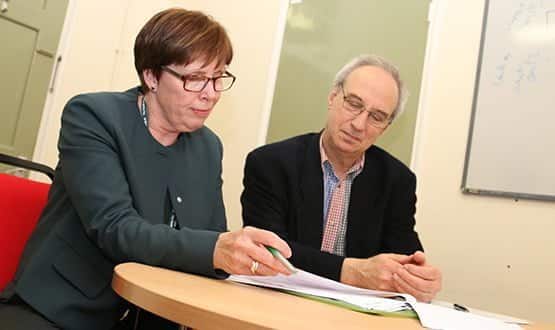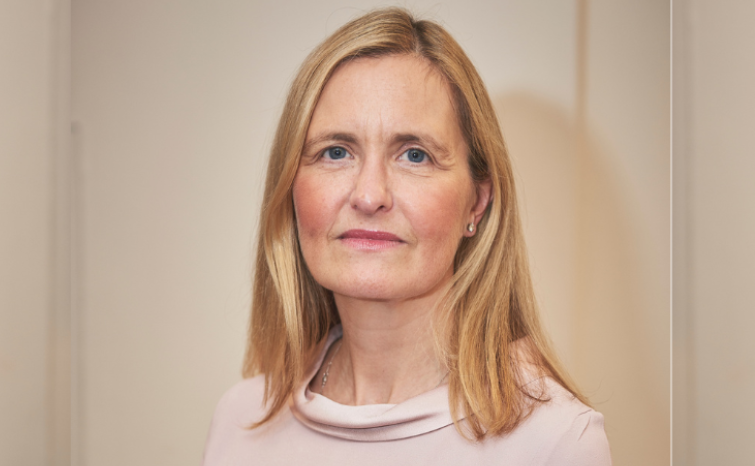Digital Health profile: Trisha Bain
- 20 May 2015

Trisha Bain’s CV suggests that she likes a challenge. Her last job was at The Rotherham NHS Foundation Trust, where she helped to turn-around a notoriously difficult implementation of Meditech v6.0.
Now, she is working at Medway NHS Foundation Trust, which has just implemented a new patient administration system, and is about to embark on an IT strategy that must help it to get out of special measures.
However, Bain’s background lies less in IT than in research, quality and safety; and it is this that has led her to her latest job, as the first ‘chief quality officer’ to be appointed to the executive team of an NHS trust.
“I have always had an interest in data,” Bain says. “At Rotherham, I moved from [being acting chief of] business intelligence into the director of health information role, and then I was brought in here to do the PAS.
“But my passion is BI and quality. I think [my new position] is quite unique. I have sort of done it before, and there are people doing similar roles, but this links everything together.
“It is an over-arching function that brings together information and intelligence and then takes that into working practices to promote quality. I am very excited about it.”
Chief quality officer – a new movement?
The chief quality officer role has been promoted by Professor Nick Black, the professor of health services research at the London School of Hygiene and Tropical Medicine, and chair of NHS England’s national advisory group for clinical audit and enquiries.
Over the past year, he has written a number of articles, and given many presentations, arguing that trust boards need to engage more effectively with the quality of their services – even as they tackle the financial and demand pressures on them.
“Robert Francis concluded that the problems at Mid Staffordshire NHS Foundation Trust [which saw high death rates and unacceptable conditions on some wards in the late 2000s] were ‘primarily caused by a serious failure on the part of the board,” he wrote in the Health Service Journal last October.
“That should not surprise us. It was an extreme example of widespread inadequacies in boards. We wouldn’t expect competent financial management without a director of finance. So why do we expect quality to be managed without similar, expert leadership at board level?”
Black has argued that although the medical and nursing directors are often given quality responsibilities, they have too many other duties to do the job effectively, which is why chief quality officers on the US model are needed.
Bain has worked with Black in the past and he visited Medway while the executive team was shaping up the new role, in which she will work closely with the chief medical and chief nursing officer. He hopes that “chief quality officer” will develop as a social movement, now Medway has made what he describes as a “trailblazing” appointment.
Lessons from Rotherham
Bain did her first degree in human biology and then worked as a researcher at Nottingham Medical School. Her biography on the Medway website says it was while she was researching the epidemiology of injury prevention that she became interested in data.
She went on to work at a community trust as head of research and effectiveness, and then held posts at the Commission for Health Improvement and the National Patient Safety Agency before getting her job at The Rotherham.
It had big plans to use IT to drive efficiency, but struggled to Anglicise Meditech v6.0 and then get it deployed. “I got involved in that because I was working on the BI side, and we started to pick-up issues,” Bain said. “Then I was asked to turn things around.
“I guess the lessons I learned were: you need real medical leadership and clinical involvement; this is not about IT, it is about organisational change; and that you have to look at this as an information tool and not as an IT implementation.
“So one of the benefits of [the chief quality officer] role is that it really brings home that [Medway’s IT programme] is about whole organisational change, and that it is about supporting people, not just making them use IT.”
Turn around with IT
Medway certainly needs to support its people. The trust went into special measures in July 2013, when it was one of 14 trusts with persistently high mortality ratios to be reviewed by NHS England medical director Sir Bruce Keogh following the Francis Report.
Then, last November, it was judged as ‘inadequate’ by the Care Quality Commission, whose inspectors found long waits in A&E, problems with patient flow that were leading to delayed admissions and discharges, and a culture of ‘fire-fighting’ among staff.
Over roughly the same period, the trust had been due to implement an Oasis patient administration system to replace its legacy McKesson Totalcare PAS, the national support contract for which ran out last March.
The implementation was delayed by the wider problems, and by a programme to review data cleansing and migration. However, the trust finally went live with the new PAS (which is now owned by Allscripts) at the start of February.
Bain says the trust is now reporting its referral to treatment times and other statutory returns, and starting to look at the next steps in its IT strategy. “We are at business as usual, so now we really need to start focusing on bed management, which is the next thing to go, and getting the clinical systems in,” she says.
“Bed management will make a big difference to our patient flow, and because it includes things like handover and discharge planning it will contribute to our recovery. I think it will be a step change for the organisation, so it is really critical.”
Quality – and the Health CIO agenda
The trust is also looking at an 18 month programme to improve data quality, so it can expand its data collection, and start encouraging staff to pay more attention to quality and key performance indicators.
Bain is particularly looking forward to this work, not least because it plays into her new role. “I think I will be able to work more closely with the clinicians, and have more input into how technology can support quality, and also get more feedback on what will help them,” she says.
She is also keen to see staff using data in their day-to-day work by, for example, swapping paper VTE (risk of blood clot) assessments for calculations on mobile devices. And, of course, she is keen for more trusts to appoint chief quality officers – from IT or other backgrounds.
“Nick [Black] did ask whether an organisation should appoint an IT person or a quality person,” she says. “But I do not think it is either, or. What you need is somebody who understands quality systems, and processes, and where the information feeds in.
“The message is that we all need to start seeing the links between IT and quality, because that will strengthen all of our agendas. I think the IT people we have now, working with movements like the Health CIO Network, and the chief quality officer, are starting to get that now.”




